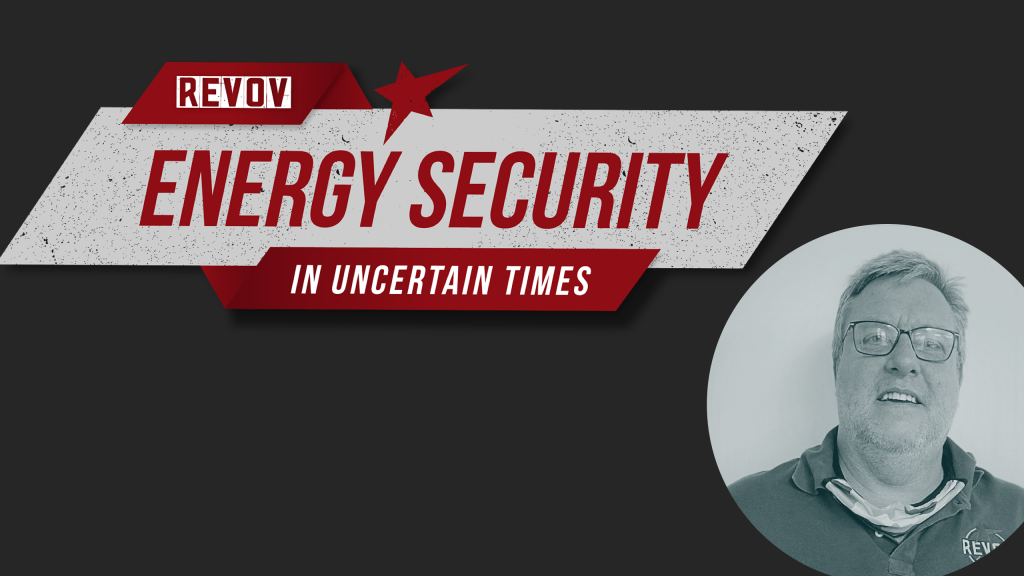We all have them. Those apps we open without thinking. Not because we need anything in particular, but because they feel… safe, in some…
Friday Interview: Lance Dickerson, Revov co-founder and CEO

Headlines hinting at a 30 percent electricity price increase and an equal reduction in Eskom’s electricity availability means 2022 going to get very dark, incredibly quickly. That economic outlook, however, is great for Lance Dickerson’s battery storage business Revov.
“Revov has name recognition and we’re on shelf when people are shopping for battery storage.”
Your background is interesting, how does your telecoms experience lead to selling electricity storage solutions?
“If you don’t mind let me just take a step back… So myself and my partner came from two different areas. I worked for MTN, he worked with Ericsson who were one of MTN’s largest equipment providers at the time. Probably the best thing that ever happened to me went off and helped to start MTN Nigeria.”
“We had these beautiful forecasts that said, in the first 12 months we would do 150 000 customers. I think we did 150,000 customers in like 7 days and it was a mess. The network was a disaster and it took us five years to get it to a reasonable scale.”
“We had well over 10 000 sites and each had two generators on them for when there was a power failure. But the battery systems that were available at the time were lead acid batteries. If you’re lucky they would last three months so you had to have two generators to keep it running. I had a budget of $4 million a month for diesel and it was just nuts.”
You can have the best technology, but if you don’t sell it then it is not a business.
Okay, so then it was out of necessity that you needed to get into the battery storage game?
“About four years or so later Lithium-ion phosphate started to come onto the market. We knew they had the same issues that all over Africa, so without connections and telecoms we managed to get a nice distribution deal with BYD (Chinese EV battery manufacturer). It was a very expensive product at the time and network operators are all about costs.”
“We were just about to give it all up and our contact from BYD came down here to see us and he said to me he has an opportunity, “I’m leaving BYD and I’m going to buy all the batteries that come out of electric vehicles and build storage batteries.” And we said we’re in. We had no idea where this was going to go. We just knew it was a good idea and that’s kind of where we started.”
That’s a great start-up story, but how do you stay ahead of the competition?
“We’re in an equity partnership with our supplier and he acquires the batteries from four different sources, processes, and packages it. Our only limitation is raising capital to buy batteries. Luckily we have a very good funding partner.”
We got tripped up with this shortage, because the chips we use are the same that they use in electric cars
How has the chip and general supply chain shortages affected your business?
“We got tripped up with this shortage, but we need to redesign the whole system to work on another chip because the ones we use are the same that they use in electric cars. Now we know that we had to design the system to work on different chips from the start. That’s business, you bash your head, learn and start again”.
Are there other ways you’re diversifying? Especially now that more competitors like Tesla are entring the market?
“My 2021 business plan was to move into the 12V sector and do a lead acid replacement campaign. The problem is that demand is still on such a trajectory that you can’t get your business in order to meet it. We may very well be missing out on opportunity, but if you don’t have stock available when people are looking for it then they go somewhere else.”
“We have the aftermarket side sorted so customers have that piece of mind. If you buy from the importers who don’t have the same supply chain support that we do, then for a warranty claim you need to send the product back to China and good luck with that. Revov has name recognition and we’re on shelf when people are shopping.”
But you don’t manufacture in South Africa, you only do the final tweaks to the software. Why? Is there a shortage of skills?
“There’s not a lack of skills, the skills are just really expensive. Or, rather, there is the ability and the people, but not the finished skills – which is why it’s so expensive.”
There’s not a lack of skills, the skills are just really expensive.
If you had to start this business again today, knowing everything that you know now, what advice would you give yourself?
“After testing the idea the first two people to hire is to handle the financials and the sales. Every business is a sales business. You can have the best technology, but if you don’t sell it then it is not a business. Those two roles must be people you can trust to do the job well because that’s just what they do.”
“Make sure that you get the most solid people you can. People who are willing to work their backsides off and are willing to learn. I can teach you anything about my business in two weeks, but if you don’t want to do it then we’re wasting our time.”
“As soon as the business has some momentum you then need to start looking at it from the outside. That’s how you find opportunities because they sit on the fringes. Often, you’ll miss those opportunities, but you must still look for them. For us it’s the application of our technology.”


